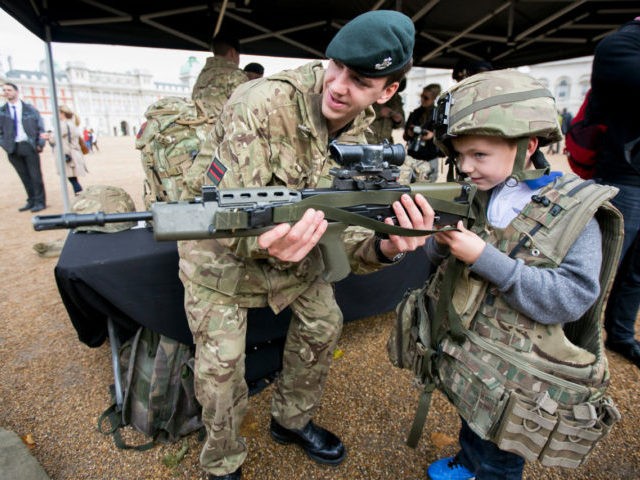The number of regular soldiers in Britain’s army has fallen below 80,000, the lowest it has been for over 200 years, the latest manning figures show.
The Army was slashed by the government from 102,000 to a target of 82,000 during the 2010 defence review – reducing it to the smallest British force since the Napoleonic Wars – driven by the austerity budget introduced by the coalition government. Reservists were expected to make up the shortfall, increasing from 19,000 to 30,000.
But the latest personnel figures from the Ministry of Defence show that the army only had 79,590 trained regular soldiers in July, while the RAF and Navy also both fell hundreds short. Low morale, low unemployment and a lack of high-profile operations are all contributing to a recruitment rate at only 90 percent of target rates, officers told The Telegraph.
One Army source said: “It’s a competitive market out there. In a recession we find it easier to recruit and when things are on the upturn, we find it more difficult.
“When we are on operations, it’s a little bit easier strangely enough. Soldiers want to get out there and get rounds down.”
Charles Heyman, editor of Armed Forces of the United Kingdom and a former infantry officer, said: “It’s significant because it is part of a trend and the Army is going to find it difficult to catch up quickly.
“There’s no doubt that not having Afghanistan does have an impact on recruiting. There’s a lot of opportunities in civilian life and there’s not really any fresh thinking about how to get people to serve in the Army.”
Heyman said that outsourcing recruitment to the services firm Capita had further hindered recruitment, as the process was overly bureaucratic and staff were less likely to ‘sell’ army life to potential new recruits.
“I went to a recruiting office in North London and a be-medalled sergeant said, ‘You are just the kind of lad we want’ and he talked me into it. Capita is not doing well at recruiting. It’s difficult to get an application through the system,” he said.
Both Heyman and other former officers are concerned about the effect a reduced force will have on operational readiness, should the need arise.
Heyman said: “If a major operation comes up then of course all the strains and stresses will show up immediately. It will be difficult to make it work.”
Meanwhile Col Richard Kemp, a former commander of British forces in Afghanistan, said defence cuts had left Britain “dangerously exposed at a time of growing risk”.
“Cutting to such levels clearly demonstrates a lack of will to defend ourselves, shows weakness and is an invitation to enemies and potential enemies to attack us,” he said.
“We depend on the US for significant security cover but there have been signs for some years of their exasperation with European countries for not doing enough to help themselves.”
A Ministry of Defence spokesman said: “The Army offers exciting opportunities that inspire the best of our young people and we are committed to recruiting to 82,000.
“Today the Army is active across the world to keep Britain safe and has the manpower needed to meet its operational commitments.”

COMMENTS
Please let us know if you're having issues with commenting.